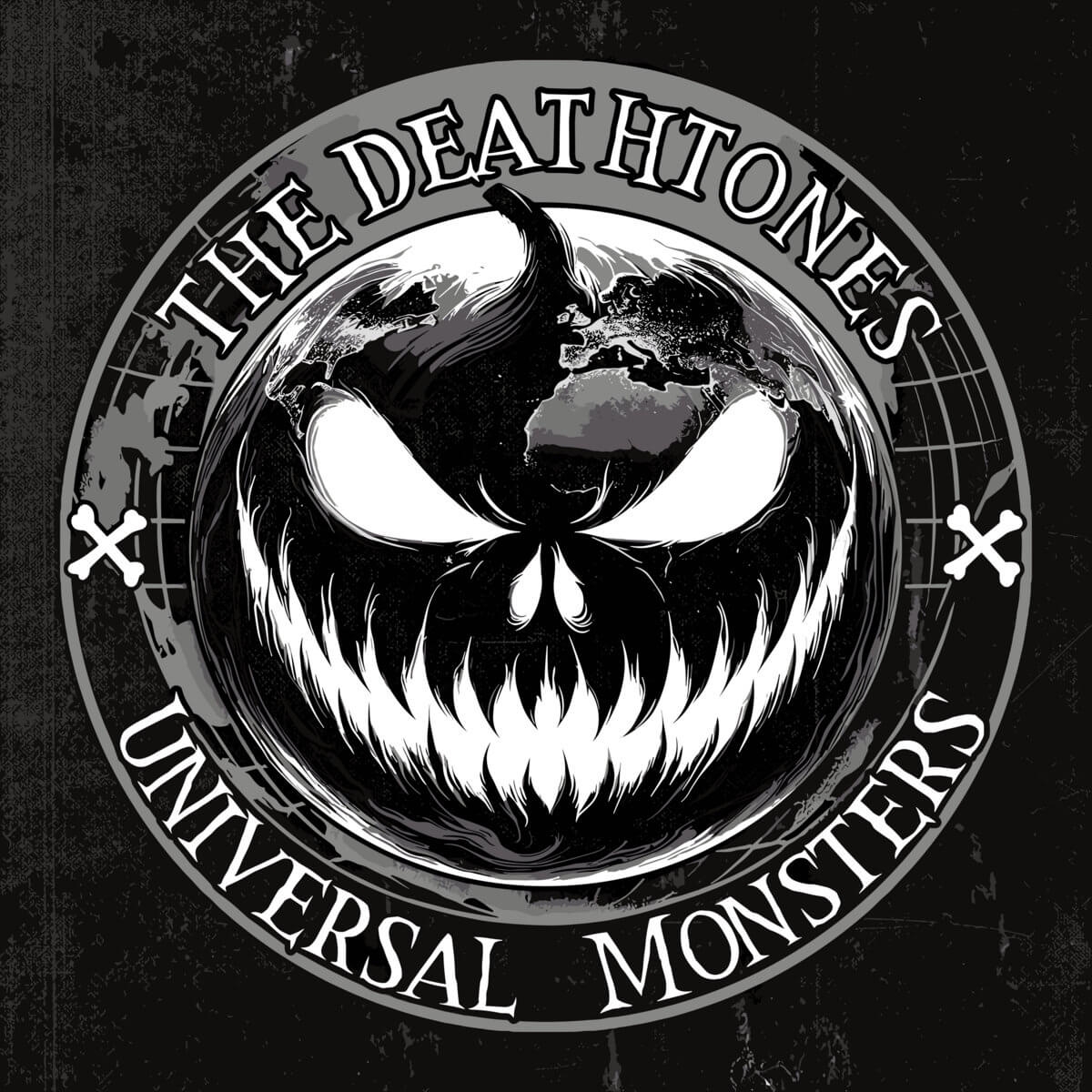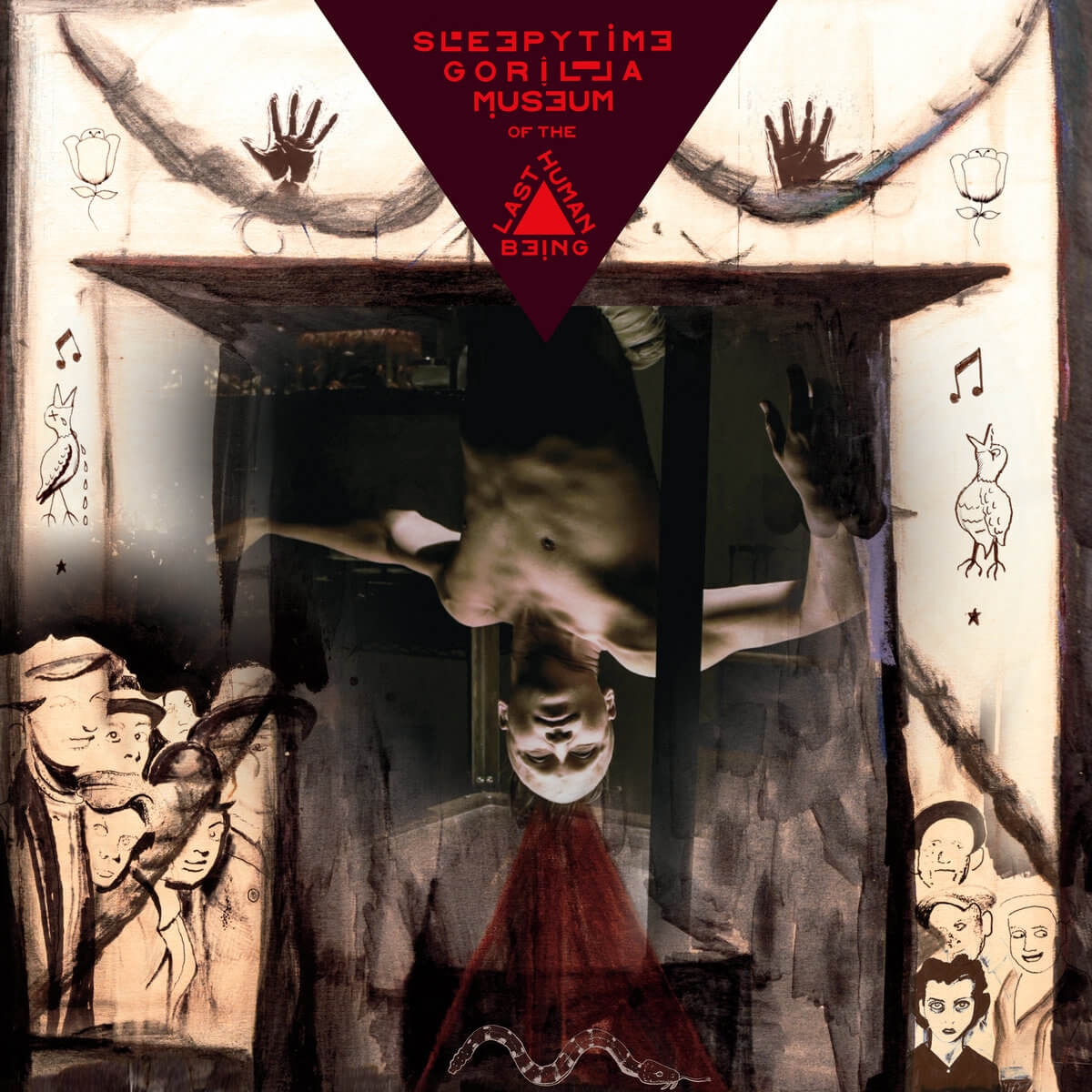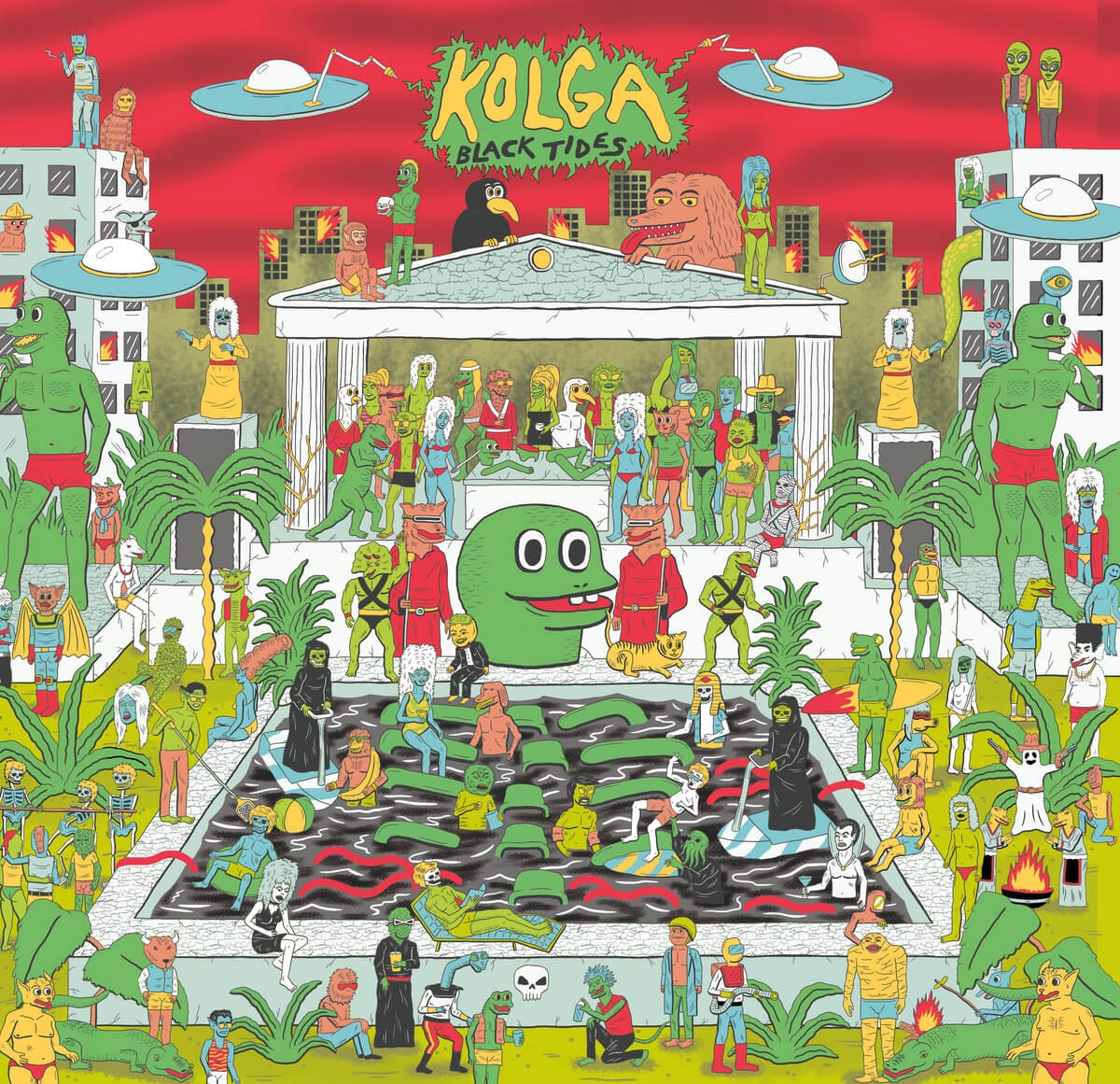Sleep and other horrors. I don’t know what goes on within the Sleepytime Gorilla Museum after hours, and truth be told, I don’t always understand what’s happening during public viewings, either. Past exhibits have focused on Ted Kaczynski, pulmonary tuberculosis, pediatrics, cicadas and cockroaches. It’s been 17 years since their last offering, In Glorious Times and during that time they’ve been gestating, hibernating, or whatever it is they do when they’re doing what they do. Glorious times, though, are here again, because the primo prog-goth-metal-art-smart and unlike anyone else Oakland, CA, cabaret outfit is back and the fruit of their sabbatical is a remarkable new record, Of the Last Human Being (CD, double LP and download out last month from Avant Night). If the previous three albums—plus a 2003 live album that was altogether its own oddity—were displays, Last Human Being is an invitation to observe. With singer/guitarist Nils Frykdahl’s gentle falsetto and fearsome growl, they’re capable of full throttle rock and, adding violinist Carla Kihstedt’s fragile soprano, something akin to metallic madrigals. There’s some pounding cuts here, of course—“The Gift” and, especially, “Burn Into Light”—and a couple of gently quirky songs from Kihlstedt—“Silverfish” and “Hush, Hush”—(plus cinematic videos for both “Light” and “Hush). There’s a bit of comedy concerning the titular last human in the scientific plea of “We Must Know More” and more concerns about extinction in bassist Dan Rathbun’s “Old Grey Heron.” There’s even a cover, a new recording of This Heat’s “S.P.Q.R.” (which they previously did on a 4-way split 7” with The Ex, Voodoo Muzak and Cheer-Accident). All of these and other songs are reasons for celebration and revelry, but interspersed among them are private court dances and rituals, instrumentals that make the album its own full and vibrant, dark and wonderful world. The last time Sleepytime toured, it was under the concern, or at least the acknowledgment, of the demise of humanity, and a long discussed film of the Last Human Being is, apparently, now nearing completion. There ain’t no party like an extinction rebellion party.
Sleepytime has always grafted bits of humor and cabaret into the act, and the best horror usually employs some element of showmanship. The Universal Monsters reboot of classic creepshows has gotten off to a prolonged and stumbling start but apparently isn’t dead yet. But over in Milford, PA, the Deathtones have been paying tribute to classic horror for the last couple of years. Convened as a side project of pop-punk band RadioRiot!, the horror lovers have released a couple dozen singles and EPs over the last couple of years—kneeling before Stephen King and paying homage to the Friday the 13th and Leprechaun franchises—some of which were collected on last year’s The American Invasion. Their Universal Monsters, out last month on We Are Horror Records (CD and digital), contains a half dozen songs retelling some of the greatest scary stories ever put on screen. Count Dracula, Frankenstein’s Monster, the Mummy, the Invisible Man the Wolf Man and the Creature From the Black Lagoon are all given sympathetic treatment against slightly cartoonish goth-metal soundtracks, over and done in under half an hour and all lovingly silly, just like the movies that inspired the songs.
The duo Scarefield, meanwhile, finds its inspiration in the music and the movies of the ’80s on their debut A Quiet Country, which they self-released on CD, LP and digitally last month. The pair (Italian multi-instrumentalist Simone Manuli and Swedish singer Markus Kristoffersson) inform their New Wave of British Heavy Metal melodicism with references to John Carpenter, Wes Craven, HP Lovecraft, Plato, Planet of the Apes, Greek mythology and even reality: “Altar of Fear” was inspired by Kristoffersson happening on an outdoor, Satanic ritual as a kid and waxes philosophical with Mr. Bungle lilt: “Every species can smell its own extinction / We’ll never know the nature of creation / It’s inhuman, it’s not a jurisdiction / home is lost, reality isn’t fiction.” With stacked guitars, machine-gun drums and multi-tracked riffage, Manuli builds a big enough sound to induce thrash metal flashback.
Truth be told, though, the ’80s might not be the firmest of ground to build on. Nashville’s
Aaron Lee Tasjan, however, isn’t looking to put fear in anyone’s heart. His “Horror of it All,” from the forthcoming Stellar Evolution (due next month from Blue Élan) sounds closer to Don Henley or maybe a lost, latter-day Cars song but the video captures the era’s schlock teen cinema perfectly, even down to the VHS-dub faded colors. The decade was half over before he was both—’80s nostalgia might be strongest among those who didn’t have to live through it the first time—but he hits that questionable nail on the head.
Thrashing and bashing doesn’t always have to be so serious. Out of the depths of Texas comes Kólga, who claim territorial rights to blackened surf rock with their debut Black Tides (CD, LP and download out March 29 via Otitis Media Records), which rips through seven tunes in under half an hour with simple, grooving themes filled out by theremin, synth, waterphone, lots of percussion and lots of banging. It’s essentially an instrumental album (grumbles and howls are partially submerged under the tide) and a right clever gimmick, but it’s more than that. While Ventures-adjacent riffs dominate, the band (made up of members of Dead To A Dying World, Spazm 151, Akkolyte, Cleric, Tyrannosorceress, Damage Case, Sabbath Assembly, Wrekmeister Harmonies and Unconscious Collective) brings knowledge to the beach. There’s moments of shruti-tinged sci-fi, some straight scorching melodic death metal and even (to these non-surfing ears) some early Alice Cooper influence. Summer will be here sooner than you know it, and Kólga will be here to destroy it.












